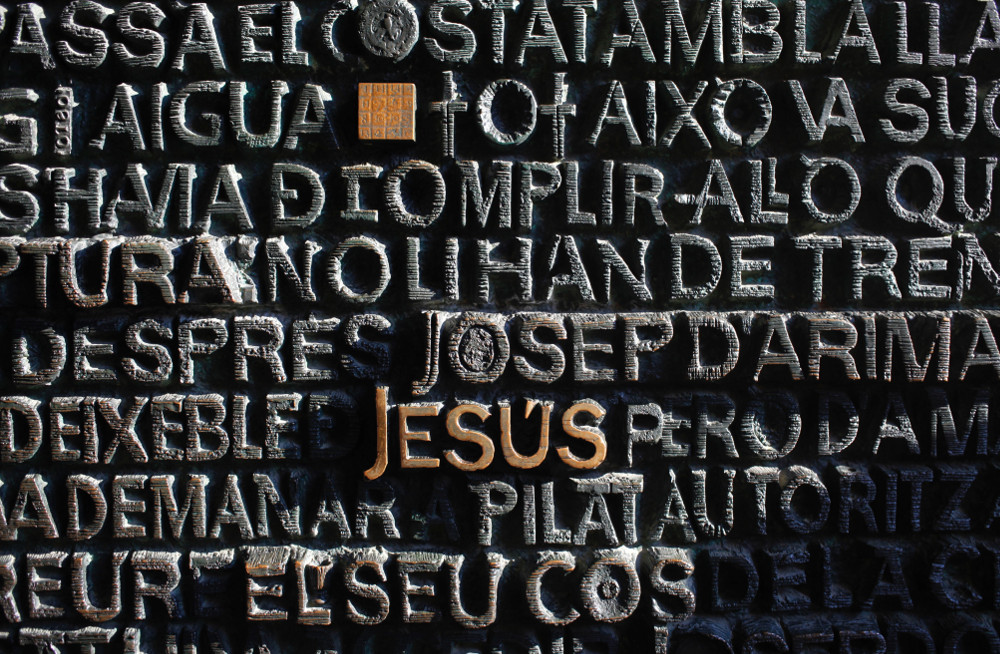
Unsplash/Eran Menashri
There used to be a billboard on Interstate 70 that said: "Don't make me come down there!" It was signed, "God." That just might sum up the first reading and Gospel we hear this week.
This is a four aces Sunday for everybody who thrives on criticizing the hierarchy and clergy. Malachi lambasts corrupt priests, and Jesus is on a roll as he goes after the hypocritical religious leaders of his day. That can make us, the people in the pews, feel nice and comfy until we remember that the Gospel is designed to call us to conversion, not reinforce our self-righteousness.
Remember how at the end of the Gospel of John, Jesus told Peter that he was going to be led where he didn't want to go? Squirming, Peter responded by pointing to the beloved disciple and asking "What about him?"
Jesus answered, "What concern is it of yours? You follow me." If we take that advice, we'll look to what these readings call us to do and pray that others do the same.
Today's Gospel brings us into the core of Jesus' moral teaching. What Jesus demands of the people of the covenant is integrity, being who you say you are, making all your behavior an expression of your beliefs, no matter the cost.
It was Jesus' integrity that allowed him to heal on the Sabbath; he knew that God's will was for the well-being of people, no matter the cult restrictions. Integrity led Jesus to the cross because his life meant nothing if he weren't faithful to his Father. Integrity means that you have learned what life means and you live your life like you mean it.
What made Jesus both popular and frightening was that he never stopped talking about the real meaning of life. "You are worth more than many sparrows," "Do not be afraid of those who can kill the body but cannot kill the soul," "I have come not to abolish but to fulfill" the law and the prophets.
Jesus censured the scribes and Pharisees because they said all the right words while they used their position to their own advantage, wasting little concern on God's people. They loved to expound on God's law but were adroit at avoiding its requirements in their personal life. They could tell others what they should do, but did nothing to help them accomplish it. Displaying their religious regalia and making public displays of their piety, they had fallen into a trap of seeking attention and admiration rather than cultivating a relationship with God.

(Mark Bartholomew)
Their teaching was empty. That was bad for them, but worse, it endangered the vitality of the word of God. Hypocritical preaching is far more grievous than no preaching at all. It is destructive, which is another way of saying that it's diabolical.
So, back to us in the pews. What did Jesus want the ordinary folk in his audience to hear when he went after the scribes and Pharisees? He made one thing crystal clear: "Do not follow their example." He went on to tell them, call no one your teacher, father or master, but look for the ones who serve. They are the ones showing the way to God.
There are many kinds of service today, but one we may be short on is the service of being willing to talk about the core questions of life. Polite people have been taught to avoid conversations about religion and politics because some people don't want to be confrontational. Talk about your football team, the weather, even the hierarchy, but don't risk being offensive by saying what you really believe is right or meaningful. Keep your integrity hidden under a bushel basket.
Advertisement
A couple of years ago, columnist David Brooks lamented that public discourse has become "undermoralized and overpoliticized." He said, "We have many shows where people argue about fiscal policy but not so many on how to find a vocation or how to measure the worth of your life" (The New York Times, May 15, 2015). If we want to avoid the superficiality Jesus criticized, we will begin to engage in meaningful discussions. The clergy are not the only ones called to proclaim the word; we are all baptized to be a priestly, prophetic people.
The billboard message made a point, but also missed a point: God has come down here and has given us the mission to make that obvious in word and deed.
[Mary M. McGlone, a Sister of St. Joseph of Carondelet, is currently writing the history of the Sisters of St. Joseph in the U.S.]
Editor's note: This Sunday scripture commentary appears in full in NCR's sister publication Celebration, a worship and homiletic resource. Request a sample issue at CelebrationPublications.org.











